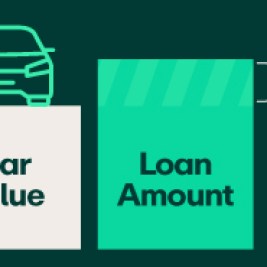
Getting financing for a vehicle can open up all kinds of opportunities.
Besides the chance to go places with your new wheels – so awesome! – you may also be able to improve your credit score which can be a big plus for your financial future.
Making timely payments
Whether it’s taking out an auto loan or using a credit card, most people need to borrow money as they go through life. When you borrow in this way, your credit habits are usually recorded by credit reporting agencies.
These agencies (the main three are Experian, Equifax and TransUnion) use the information to create credit scores which give lenders an idea of how responsible you are as a borrower and the risk involved in lending to you.
Payment history is typically the most important part in your credit scores, according to Experian. So, consistent, timely payments on your car loan could help you to build and keep a healthy score.
Effects of late payments
While making timely payments is a positive, late and missed payments are – you’ve guessed it – a negative and could damage your credit score. They may lead to extra costs on your financing, too.
Here’s what might happen:
Late fee – Initially, a late payment might result in a fee which is added to your next bill and becomes an extra expense on your account. And who likes an extra expense? The amount charged varies by lender, and you may want to check the terms of your contract to find out how much a late fee is on your account.
Added interest charges – Besides a late fee, you may also face an added interest charge. A late payment, starting at a day late, could increase your interest costs as more interest will have built up by the time the payment is received. Most auto loans are simple interest loans which accrue interest daily.
The actual amount of interest charged will depend not only on how many days late the payment is but also the rate of interest on your loan. That added charge could lead to a balance to be paid at the end of your contract.
Lower credit score – Your credit score could take a knock, too. A lender can notify the credit agencies that a payment is late when it reaches 30 days past the due date. The late payment will then be included on your credit reports and may lower your scores, making it harder to borrow money in future.
Other effects – If you miss a series of payments and don’t bring the account up to date, the lender may take action, like closing the account, charging off the debt and sending it to collections. In the case of an auto loan, it could lead to the repossession of the vehicle. All of these things may seriously dent your credit score.
What else can you do to improve your score?
Of course, it’s important to make all your payments on time, not just for your auto loan, and there are other ways to get a good score. Here are some more tips to keep in mind:
- Avoid getting too close to your credit limit – Try to stay within 30 percent of the total amount you’re allowed to charge on accounts like credit cards. One way to do this is by paying off your balance each month.
- A long credit history will help – Credit scores are based on your credit experiences over time, so the longer you can show good habits, the better it is for your scores.
- Only apply for the credit you need – Credit scoring companies are also interested in how much money you need to borrow. If you apply for a lot of credit in a short period of time, they may think your finances have taken a turn for the worse.
- Check your credit reports – Did you know you can get copies of your credit reports? Well, you can! Consider requesting a copy from each of the main credit reporting agencies to look for errors that could hurt your scores. Even an outdated address or misspelled name could make it harder to get credit. Then, if you see anything you think is incorrect, get in touch with the reporting agency and the company that provided the information to dispute it.
Organizing your payments
Making timely payments is an important part of taking care of your finances, and you may want to organize how you make those payments to keep them running smoothly.
Two easy and effective options are setting up automatic payment reminders or automatic payments for your financing account.
If you set up automatic payments, don’t forget that you’ll need enough money in your connected bank account, or other connected account, for the credit payment to clear and avoid being overdrawn and charged any extra fees.
A road to financial wellness
Explore more Drive® articles to keep learning about financing a vehicle and healthy financial habits.


